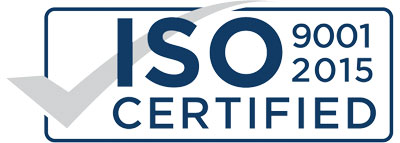Communication across cultures
Audience
- managers managing teams in corporations
- managers working as entrepreneurs in their own business
- corporate project leaders or coordinators
- team members working with different cultures
- HR staff
Objectives of the training
- to improve the ability to communicate effectively in an intercultural environment
- participants will learn about different communication models, such as indirect, direct, high and low context communication
- participants will know their communication styles, enabling them to better understand the specifics of intercultural communication
- getting to know the different perception of feedback
Expected outcomes
- to enquire competences will allow the trainees to adjust their communication strategies to the context of the culture with which they will work
- to avoid the most common mistakes made when communicating with other cultures.
- to define and name the sources of differences in attitudes and behaviours in multicultural teams
- to define the main intercultural challenges in a given project or team and identify ways and tools to deal with them the participant is able to select and apply an appropriate communication style towards team members
- to avoid misunderstandings in communication resulting from different styles of behaviour
- to be able to create emails which can be understood by people from different cultures
- able to adapt the cooperation strategy to the multicultural context
The methodology of the training
The programme of the training
Module 1. Cultural competences – importance and awareness
- What competences are needed to communicate effectively with representatives of other cultures – the importance of sensibility to detect and manage culture related factors
- The role of stereotypes in intercultural communication — breaking stereotypes about selected countries
Module 2. Efficient communication for better cooperation:
- What is intercultural communication
- The structure and main elements of the communication process
- Different ways of communicating: directiveness, circularity, high and low context, affectivity and neutrality, formality and informality
- Ways of adjusting communication for better cooperation
Module 3. Dimensions of Cultural orientation grid
- Sense of power and responsibility
- Concepts of personal space and boundaries
- An approach to time management
- Definition of identity and purpose
- Ways of thinking
- Organizational arrangements
Organisational information
- the training can be conducted on-line or on-site
- you will receive training materials
- you will receive a training completion certificate
- online consultations with the trainers up to 2 weeks after the training
- training takes place between 9:00 and 17:00 CET
Training dates:
Contact:

Kamila Ludwikowska
tel. +48 507 457 665
Do you have any questions?
Contact me via the form below.
Application form
Check also other trainings
Diversity and inclusion training
The training explores diversity and inclusion in the workplace on many levels. Diversity and inclusion training aims understand…
Get the detailsRelocation training for people coming to Poland
The program begins a few weeks before the planned relocation. The purpose of relocation training is to prepare…
Get the detailsCommunication across cultures
The goal of the training is to develop cultural competence, especially in the area of interpersonal communication and…
Get the detailsPolish business culture
The purpose of this training is to familiarize the participants with the specifics of the Indian market and…
Get the detailsKorean business culture
The purpose of this training is to familiarize the participants with the specifics of the Korean market and…
Get the detailsIndian business culture
The purpose of this training is to familiarize the participants with the specifics of the Indian market and…
Get the detailsGiving presentations across cultures
The training has a practical and interactive character and is focused on practicing various elements of giving presentations…
Get the detailsCoaching leadership style in a diverse work environment
The training has a practical and interactive character and is focused on giving and practicing concrete coaching tools…
Get the detailsConflict and dialogue management in multinational teams
The training provides knowledge and develop competencies about the nature of conflicts and its understanding.
Get the details








